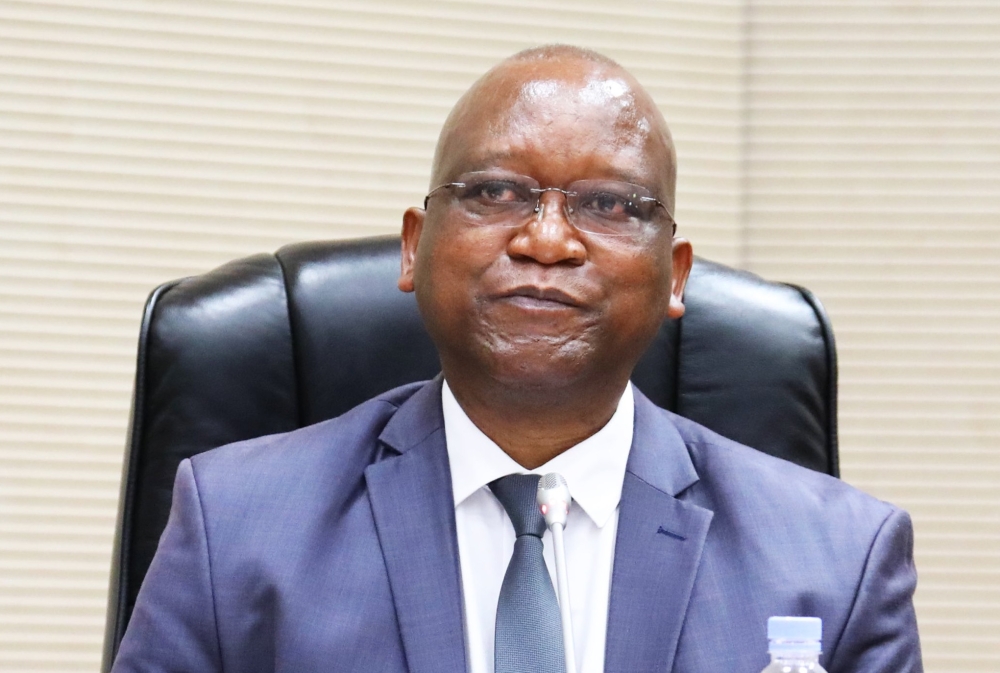

The Minister of Defence, Juvenal Marizamunda, has said that new proposed changes in the bill governing the Rwanda Defence Force (RDF), are intended to further its leadership and command – in line with defending the country’s territorial integrity and national sovereignty, as well as its peacekeeping missions abroad.
On March 14, the lower chamber of Parliament approved the relevance of a draft law governing RDF. It will be scrutinised by a responsible parliamentary committee prior to being voted into law by the assembly.
While explaining the relevance of the bill to lawmakers, Marizamunda said that RDF always endeavours to strengthen strategies in line with its mandate and vision by furthering the building of a professional army, at the same time remaining relevant in the face of changing security situations globally in general, and the region in particular.
It is in that context that RDF made reforms in its establishment and organisation structure with the aim to improve its leadership so that it better fulfills its mandate, he pointed out.
That led to changes in the already existing law.
Here are the six main proposed changes in the new bill:
RDF to get a deputy Chief of Defence Staff
One of the proposals in the bill is that RDF gets a deputy Chief of Defence Staff (CDS).
Currently, Marizamunda said that the Reserve Forces, and Air Forces already have deputy army chiefs.
Other RDF services will also get deputy army chiefs – those are Land Forces, and Military Health Service (which is new).
He said that having a deputy army chief will ensure a reliable force command.
Security dynamics, he said, led to reforms meant to build a strong force based on professionalism.
He indicated that RDF was serving in various peacekeeping missions including in Sudan and Central African Republic, and Mozambique.
ALSO READ: Rwanda deploys more troops to Central African Republic
"We are not building the force of today; we are building a long-term force. That is why we had an idea that a CDS have a deputy such that when he/she is not available, the command is not brought to a standstill,” Marizamunda observed.
Since 2002, RDF adopted a Joint Structure with a Chief of Defence Staff at the helm of the Defence Force – as its Joint Commander, according to information from the Ministry of Defence.
A new component – Military Health Service
RDF currently comprises three services, namely the Rwanda Army (Land Forces), the Rwanda Air Force (Air Forces), the Rwanda Reserve Force and Special Units, according to information from the Ministry of Defence.
"Now, a new military service in charge of health was introduced – Military Health Service,” Marizamunda said.
He added that it will get its leader and its responsibilities will be set.
ALSO READ: RDF targets 7,000 for free medical treatment
MP Theoneste Begumisa Safari said that the new bill deserves endorsement as it will strengthen the capacity of RDF in its good work for Rwandans, and other people across the world.
Specifically, he lauded the introduction of the Military Health Service as it is aligned with RDF’s endeavour for healthcare provision.
"They care for the lives of Rwandans. When they are treating them across the country, it is a good thing ,” he said, adding that RDF also provides healthcare beyond Rwanda’s borders.
"Having this branch is something good as it will increase the capacity,” he said.
Expansion of RDF units in response to security dynamics
Because of responsibilities to ensure security in line with security dynamics globally or in the region, and in the country, the size of RDF units will be increased.
This involves an increase in military resources, including advanced equipment and skills improvement, he indicated.
"For instance, we had an engineering brigade – in charge of construction and facilitating armed forces’ movements to areas of their operations, or impeding enemy’s movement if need be – now it will become an engineering command.
Other units such Military Police, and a unit in charge of communication grew from regiment to the level of brigade.
Catering for provisions that were removed from the constitution
Also, the new bill provides for some articles that were contained in the constitution of Rwanda of 2015 but were not maintained after the revision of the constitution (in 2023), he said, adding that others will be catered for in a special statute governing RDF.
The articles in question, he said, are those that provided for demobilisation, mobilisation in case there are urgent reasons for increasing military personnel, dismissal of soldiers for various reasons related to misconduct or when they have committed faults in tour of their duties, as well as discharging them due to sickness.
Transfer of international military cooperation branch
Marizamunda said that a branch in charge of international military cooperation, which was in RDF, was transferred to the Ministry of Defence.
Clarifying entities to report to Defence Minister, and CDS
Meanwhile, he said that the drafting of the law was also an opportunity to clearly explain which entities are governed or report directly to the Minister [of Defence], and those that report to CDS.


